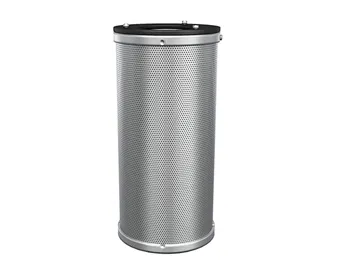 Tel:
+8615930870079
Tel:
+8615930870079
11月 . 14, 2024 10:18 Back to list
gas turbine air intake filter
The Importance of Gas Turbine Air Intake Filters
Gas turbines are widely used in various applications, including power generation and aviation. They are known for their efficiency and ability to generate significant power levels from relatively compact systems. However, to ensure optimal performance and prolong operational life, it is critical to maintain the quality of the air entering the turbine. This is where air intake filters come into play.
Air intake filters are vital components of gas turbine systems, designed to prevent contaminants from entering the turbine’s combustion chamber. As gas turbines draw in large volumes of air, even small particles – such as dust, pollen, and industrial pollutants – can have detrimental effects on their performance and longevity. These contaminants can cause erosion of components, combustion inefficiencies, and increased maintenance costs. Therefore, the role of air intake filters is paramount in safeguarding the integrity of gas turbines.
The Importance of Gas Turbine Air Intake Filters
Moreover, the choice of a suitable air filter significantly influences the overall efficiency of the gas turbine. Filters are characterized by their dust-holding capacity and pressure drop. A filter with a high dust-holding capacity can capture more particles without needing frequent replacement, while a lower pressure drop means that the turbine can draw in air more easily, enhancing efficiency. Balancing these factors is essential for optimal performance; thus, selecting the right filter type and maintaining it regularly can result in significant cost savings for operators.
gas turbine air intake filter

Cleaning and replacing the air intake filters at appropriate intervals is another crucial aspect of maintenance strategy. Over time, filters can become clogged with dust and debris, resulting in a higher pressure drop and potentially causing the turbine to work harder to intake air. This extra strain can lead to increased fuel consumption, higher emissions, and greater wear on the turbine components. Maintenance schedules should include regular inspections of filters to ensure they are performing adequately and to replace them when necessary.
In recent years, advancements in filter technology have led to the development of more efficient and durable filtration systems. Innovations such as nanofiber technology and pleated designs allow for better filtration without significantly increasing weight or airflow resistance. These newer filter designs can offer enhanced performance, further extending the life of the gas turbine while reducing the frequency of maintenance interventions.
Furthermore, the environmental considerations surrounding air intake filters cannot be overlooked. As industries strive for greener operations, the development of filters that not only provide excellent filtration but are also recyclable or made from sustainable materials is gaining traction. This shift not only helps to minimize waste but also supports the overall sustainability goals of energy producers and other gas turbine operators.
In conclusion, gas turbine air intake filters play a critical role in ensuring the optimal operation and longevity of gas turbines. By capturing harmful particulates, enhancing efficiency, and requiring thoughtful maintenance, these filters contribute significantly to the turbine's overall performance and operational costs. As technology continues to progress, future innovations in filtration will likely further improve the reliability and sustainability of gas turbines in a world increasingly focused on efficient energy production.
-
Types and Applications of Air Filtration CartridgesNewsJul.28,2025
-
The Role of Gas Turbine FiltersNewsJul.28,2025
-
Mastering Air Filter Cartridge UseNewsJul.28,2025
-
Advanced Turbine Filters for Modern Gas TurbinesNewsJul.28,2025
-
Cellulose Air Filter Cartridge Advantages in Dust FiltrationNewsJul.28,2025
-
Cellulose Filters for Air Particle ReductionNewsJul.28,2025

 Email:
Email:





